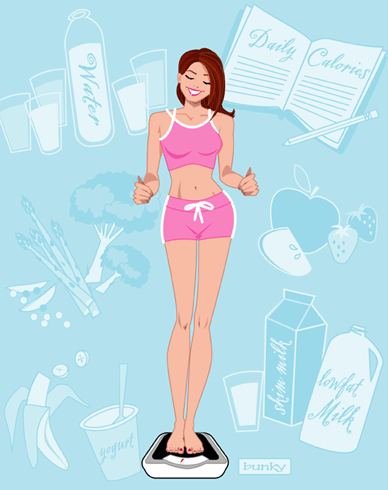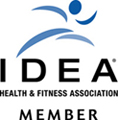I'm going to move on to another medical/hospital concern. Drugs. And I don't mean on the "street". Actually, some of those may be safer.
After each hospital stay, I can count on Mom coming home with six or more new drugs. Of which, most of the time are unnecessary. How do you decide that? It takes work. But it can be done. Find a trusted health/nutrition consultant who will work with you.
Did You Know That Deaths Occur:
- 106,000 due to non-error medical effect from drugs
- 80,000 due to infections in hospitals
- 20,000 other errors in hospitals
- 12,000 due to unnecessary surgeries
- 7,000 medical errors in hospitals,
- plus an additional 199,000 deaths due to improper outpatient care
- Total: 424, 000 deaths annually
Source: JAMA (Journal of Medicine Medical Association)
Let's take a small detour into the world of prescribed drugs in general.
In one study pharmacists reviewed 2,103 prescribing errors and the following were the error rates found:
- 3.99 per 1,000 drug prescriptions
- Among these, 12% of the errors involved doctors overlooking patient allergy to the type of drug
- 11% were due to incorrect dosages
- 11% to using the wrong drug name
In yet another study, researchers reported that about 30% of the prescribing errors were due to lack of knowledge regarding drug therapy.
- 29% to lack of knowledge regarding patient interactions with drugs
- 17% to arithmetic mistakes
- 13% to using the wrong drug name.
Can You Guess What Group Has The Highest Error Rate?
- Pediatric Patients, yes, our little ones had the highest (5.89 ADEs per 1,000 prescriptions) Scary, folks!
- Emergency-Room patients following at 5.05
- 4.5 for obstetrics-gynecology
- 3.5 for surgical patients
- Prescribing an overdose was the most common error, accounting for 41.8% of all mistakes.
Drug Interactions Are Causing Deaths
- Take the case of Viagra (April, 1998 by Pfizer, Inc). Yes, you got it. The drug to relieve men from erectile dysfunction.
- Just in its infancy, the first month on the market, 1.7 million prescriptions were filled for the pill probably by men desperate to enjoy sex again.
- Soon after, 16 of those men never got another chance as they died, presumably from fatal drug interactions.
Drug Interactions=When we take more than on prescribed drug. Which most of the time we are only following the direction of the doctor.
An Example With Little Mama:
Take something as simple as a flu shot. My mother had continued not only to have a reaction from the injections, she also got the flu anyway. When I addressed this with the doctor, it was ignored. I appealed. And I simply got, "Well, she probably needs the shot, and it's probably just coincidental that she has had problems."
"Oh, I see, that's why I had to sign that legal doc signing away your responsibility in the possible outcome of the shot????? What, then, was that for if there is nothing to be concerned about????"
Do they think we are just that dumb? I might be blond, but dumb I ain't!!! (Yes, I just abused the King's English!)
By the third year of flu shot drama, the doctor said, "Well, give me just one more chance. Let me give it to her and see what happens."
Three Strikes And YOU Are Out!
After the third time when Mom spiraled into a stroke just hours after taking it, then getting the flu, I was done with the flu shot and, yes, the doctor. I confronted the doctor once again. When I told her how sick Mom got again, and about the stroke, the doc finally acquiesced with, "You know what, maybe we need to quit giving her the flu shot." Well, duh. How long did this take for you to figure this out? Four years and a lot of unnecessary pain.
Part of the equation in all of this was that Mom was on a couple of other meds. And in the case of the stroke, the doc also had her on a very strong antibiotic. I had questioned the mixture to which I got a blank stare. That's always a red flag. The doctor insisted she needed the antibiotic. Maybe she did, but to mix it was my concern. As stated above, within hours, Mom began to experience weird sensations. Little did I know it was the beginnings of a stroke. Thankfully, I acted as fast as I could, and we were able to stabilize her.
A 3 a.m. Wake-Up Call 4 Little Mama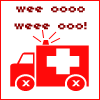
Let me site one more hospital/doc blunder that nearly took my mother's life. While in the hospital for a broken hip a few years ago, I got a call in the middle of the morning: 3 A.M..
Typically, I tried to spend the night with Mom, but everyone was concerned about my health, so I was going home late at night.
Anyway, the call was a jolt when I heard a nurse or tech on the other end, "Ellen, your mother has just been rushed to the cardiac unit. Her heart rate went up to 300 bpm, and we couldn't get her stabilized. For one thing we are not allowed to give her the med she needed, so we had to send her to the cardiac unit where they have the legal right to administer it. And it's on order."
OK, I'm thinking, am I having a nightmare??? Pinch me. When I could get my own stability in order, I had a hundred questions. Like, "What do you mean the drug she needs is "on order"?"
"Apparently, the drug is not on the "floor" so they have to order it from the pharmacy?"
The nurse checked on a few other things and called me back. She told me NOT to come down and assured me Mom was stabilizing. I reluctantly yielded. In a matter of hours, I was up and headed to hospital asap.
So now my mother is in the hospital for an entire different reason than her broken hip. Too, on a different floor, with a what seemed like a 100 other gadgets hooked up to her little body. And why? I wondered but wasn't getting direct answers.
At the end of the day, I thought she was OK, so once I again I headed home very late at night. The results: again, her heart went out of control in the middle of the morning. 300 bpm. I couldn't believe it.
Mess with her once, but twice? You don't get a third. Rushing back to the hospital, I immediately requested a meeting with the head doctor. He showed up on time and was at least kind. He disclosed to me that NO ONE should have called me to tell me what had happened. What??? The reason: A new rule for legal protection.
"Oh, really, who for? So I'm supposed to feel comfortable with leaving her knowing I won't be alerted to an emergency unless she's dead? Wow."
I pressed for answers as to why all of a sudden my mother was having heart issues at the tune of 300 bpm??? The same time every morning? I asked him what meds they had put her on???? And was this the cause?
He admitted to me that they were considering it was indeed the mixture and dosages of meds. He promised me they would change the "order". He knew I was going to hold him to it. They did, and to this day she has never had another heart "attack".

More On Medical Errors:
- A phone survey by the National Patient Safety Foundation found that 42% of people believed they had experienced a medical error personally or to a relative or friend. I could answer, YES, to this on more than one occasion.
- The Institute of Medicine (IOM) reports on two studies estimating the hospital deaths due to medical errors at 44,000 to 98,000 annually, which would place medical errors in the top ten causes of death in the USA.
- Barbara Starfield's article in JAMA places the estimates even higher, citing a total of 225,000 deaths due to iatrogenic (NOTE BELOW) causes, which would place health-caused deaths as the 3rd leading cause of death in the USA.
- Holland et al (1997) estimates as many as 1 million patients are injured while in the hospital and approximately 180,000 die as a result, with the majority due to medication adverse reactions.
NOTE: IATROGENIC is NOT A DISEASE. It means = DOCTOR-RELATED. A DOC DISEASE?
Sources: Light Party, Wrong Diagnosis, Mayo Clinic, RID, Sonlight Ventures.
Consider the next time you pop a pill. Do you really know what you are asking your body to accept. Remember we were not designed to injest synthetics/toxins. PLEASE research any med you are given. Too, make sure it's the right med. Find alternatives when you can.
So again I ask, "Can you "poison" yourself to health?"
Copyright © 2008 by Pilates Worx 4 Life. All rights reserved. Check out website: www.pilatesworx4life.com

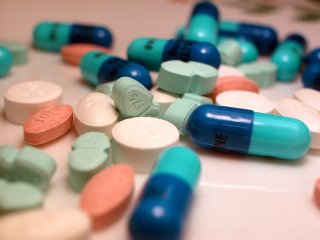
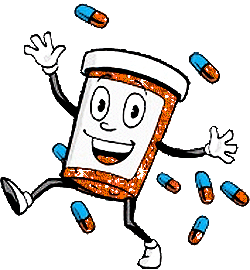




 Enjoy
Enjoy